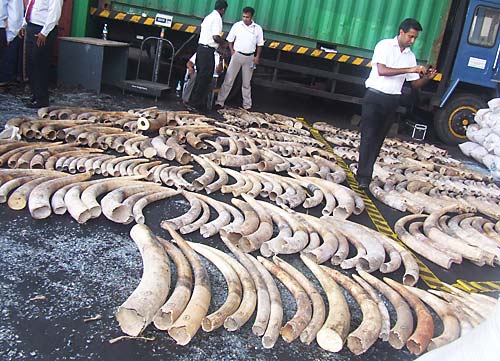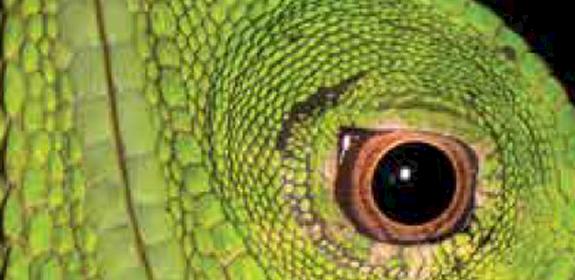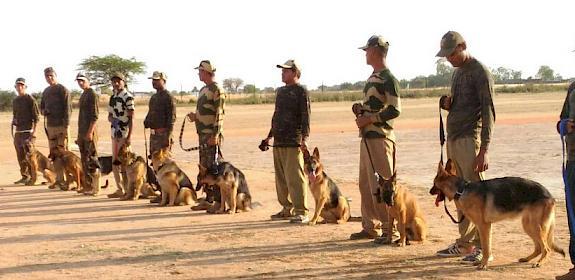Sri Lanka seizes 1.5 tonnes of ivory
Colombo, Sri Lanka, 1st June 2012 — Sri Lanka Customs authorities in the port of Colombo have seized 1.5 tonnes of ivory last Tuesday –which is the single largest-ever haul of ivory in the country.

Customs officials seized 359 ivory tusks hidden among logs in a container marked as plastic waste. The container had originated from Uganda and shipped from Kenya and was bound for Dubai. Sri Lanka Customs Custom’s Central Intelligence Unit deputy director Udayanath Liyanage told AFP that the Customs authorities in the United Arab Emirates and Kenya have been informed to investigate into this further.
According to the most recent analysis of the Elephant Trade Information System (ETIS) of the Convention on the International Trade in Endangered Species of Flora and Fauna (CITES), a number of countries in Southeast Asia have emerged as ports of call, but not end-use destinations, along the main Asian ivory trade routes to markets in Thailand and China. However, James Compton, the Asia Programme Director for TRAFFIC, the wildlife trade monitoring network, warned that this seizure in Sri Lanka raises concerns that illegal ivory traders are developing new routes through South Asia for their illicit trade.
"As existing transit countries for African ivory such as Malaysia, the Philippines and Viet Nam increase their enforcement efforts, smugglers will adapt and seek other trans-shipping routes and substitute ports of call,” he said.
Mr Samantha Gunasekara, Deputy Director of Sri Lanka Customs, warned of the need for further vigilance in the region. "Countries in the South Asia region should be vigilant and enhance their enforcement cooperation to address illicit ivory trade, so that none of these countries become prominent and problematic players in the future."
The seizure was made following a tip-off from the World Customs Organisation's Regional Intelligence Liaison Office for Asia and the Pacific region (RILO-A/P), based in Seoul, South Korea. "This highlights the crucial role that intelligence gathering and information sharing plays in stemming illegal ivory trade," Mr
Gunasekara said.
In addition to information-sharing, TRAFFIC believes that capacity building efforts in the region need to be enhanced to improve implementation of the CITES and effective enforcement of wildlife trade regulations.
"It is essential that the best enforcement practices and tools are deployed to curb this growing menace in the bud," Compton said. "Using sniffer dogs for crime detection and prevention is one technique that is making a difference in India and we hope more countries will come forward to adopt innovative tools such as this in the fight against wildlife crime”.
Officials from the countries of South Asia will meet in Sri Lanka next week at the first regional meeting of the South Asian Wildlife Enforcement Network (SAWEN), where issues such as intelligence gathering, information sharing, capacity building and law enforcement cooperation will be discussed. Launched last year, SAWEN member countries include Afghanistan, Bangladesh, Bhutan, India, Maldives, Nepal, Pakistan and Sri Lanka.



